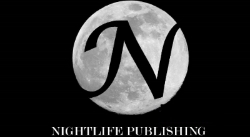“Scapegoat (noun): A person who is blamed for the wrongdoings, mistakes or faults of others, especially for reasons of expediency.”
I’m not a spy, but I have some exposure to spy logic. I’ve written five spy novels and I’ve read tons more. I’ve studied international affairs with a particular focus on spying.
That’s why the Flynn resignation sounds like a poor excuse for a cover story.
Peter Baker of the Times, published an article earlier today claiming that Trumpence Bannon (TPB) only found out about Flynn’s Russia contacts after the fact.
"Asked if Trumpence Bannon instructed Flynn to talk about sanctions with Mr. Kislyak, Spicer said, “No, absolutely not.” Asked if Trumpence Bannon was aware that the issue had come up before the Justice Department told the White House, Spicer said, “No, he was not aware.”
So let me see if I get this straight: Flynn goes off the reservation and tells a Russian diplomat what Trumpzilla is going to do to help Putin, but he never got orders from anyone else, or told anyone else anything before he made the call. Is that the story we’re going with?
Question: Why would he do that? Was he promising Russia that he could somehow manipulate Trumpzilla into aiding Russia before anything was decided? Was he just talking out of his ass? Or was he just doing what TPB told him to do? Did TPB tell Flynn to use his Russian contacts to go outside the State Department protocols and make a back door deal with Putin?
Answer: In my experience, the concept of cui bono (for whom does it benefit) is a helpful tool for understanding human behavior. Under this theory, people act based on their motivations and self interest. So if Flynn talked to Russia, there was a reason for it. If Flynn wasn’t the ultimate beneficiary of the action or he wasn’t the ultimate decision maker, then someone else got the benefit.
Question: Who could benefit from Flynn talking to Russia?
Answer: Trumpence Bannon.
Based on the current shitshow, the logical sequence of events goes like this: Trumpence Bannon wanted to reward Putin for helping with the election. He sends Flynn to deliver that message. If the message goes through, great. If Flynn gets caught, he gets thrown under the bus and the Trumpocalypse rolls on.
We need to change that narrative.
We need to prove Flynn talked to the Russians because Trumpence Bannon ordered him to make that call. We need to establish that Flynn was not a rouge agent, but an active member of an administration catering to a hostile power. We need to drain the swamp before North Korea starts firing test missiles and Russian ships are breaking peace treaties…
Too late.


